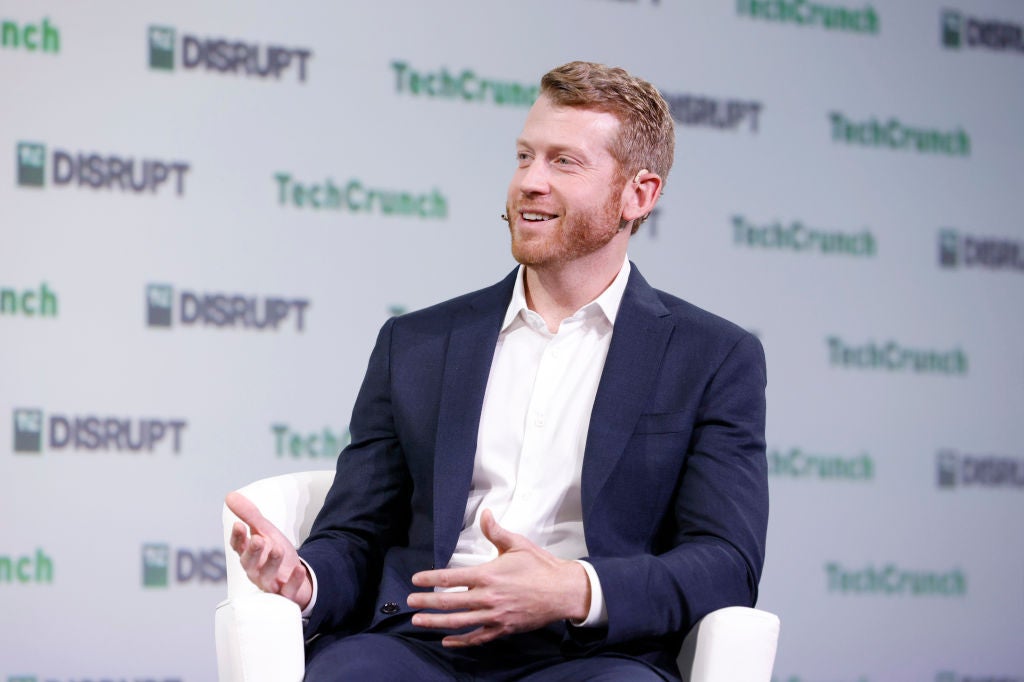
Research commissioned by computing equipment company, Lenovo, launched on 25 April, demonstrates the growing importance of AI within the enterprise. Lenovo’s third annual global CIO report reveals AI as the most urgent priority, alongside cybersecurity, for today’s global CIO. And IT leaders’ concerns are matched by accelerating investment. In Europe alone, enterprise AI spend is expected to grow by 61% year-on-year in 2024, according to Lenovo.
Based in Raleigh, North Carolina, Scott Tease leads Lenovo’s supercomputing and high performance computing and AI systems team. Just a four-hour drive from the nation’s capital, Raleigh’s Research Triangle has become a US tech hub of note and is the site of Lenovo’s main development headquarters. Located at the nexus of three higher education institutions: Duke University, the University of North Carolina and North Carolina State University, the area’s concentration of deep tech expertise, alongside longstanding anchor businesses, including IBM and Cisco, have seen the region grow in the last forty years into a world class technology ecosystem.
As the dearth of AI and deep tech skills grows, the unit finds itself well placed in Raleigh to compete on a global level. Most of Tease’s team are former IBM employees, a function of Lenovo’s purchase of the server giant’s x86 server business in 2014. And Tease believes that working within the Research Triangle will allow Lenovo to access the critical AI skills needed going forward, while avoiding the prohibitive costs of California’s Silicon Valley.
AI for the enterprise requires forward planning
While Tease admits that, “we are only in the infancy of what AI is going to do”, he has been working at the cutting edge of AI development for some time. After the watershed moment of OpenAI’s ChatGPT release in November 2022, when generative AI entered the public realm and began widespread business adoption, companies have been exploring use cases to asses the value that AI can bring to every enterprise.
Tease says, soon, every company will have the ability to create their own AI model. Later this year, Lenovo will release a foundational model, that customers can build with their proprietary data for a personalised experience on their PC. This personalised experience and the ability to build LLMs from closed and proprietary data is part of Lenovo’s philosophy of ‘AI for all’.
Essentially, Tease describes a scenario whereby AI is not built in the cloud but is in the “hands of everybody”. This is the core tenet of Lenovo’s approach to AI development. Instead of an expensive, very high power consumption model, AI can be run on very lightweight edge devices. “We have a very large portfolio of devices designed to sit outside the data center, right next to wherever we’re creating data,” says Tease. This avoids moving data across country lines and deals with the latency problem of data to and from the cloud – particularly in the case of AI where data is being interrogated for generative purposes.
How well do you really know your competitors?
Access the most comprehensive Company Profiles on the market, powered by GlobalData. Save hours of research. Gain competitive edge.

Thank you!
Your download email will arrive shortly
Not ready to buy yet? Download a free sample
We are confident about the unique quality of our Company Profiles. However, we want you to make the most beneficial decision for your business, so we offer a free sample that you can download by submitting the below form
By GlobalData“We want to we want to show people how we can bring AI wherever it is, it could be at the desktop with your PC, it could be at an edge device,” says Tease, whose team’s expertise lies within the enterprise infrastructure, so that a business is not “dependent on a round trip to the cloud.” Whether running on an AI PC, or another edge device, or data center server, it’s really the same problem mapping out where you are going to add that AI value, says Tease.
For executive’s with purchasing power within an enterprise, Tease says it is early days yet in the AI journey for companies. He recommends starting to put in place, a data infrastructure, security and networking approach that will allow a company to “put AI on top of that later on, when you decide what you’re going to do”. If the data is set up in the right way, and there is proper networking, then companies will save time and money down the line, advises Tease.
However, Tease acknowledges that the CEO and CIO of a company are on different journeys. The CEO wants to see “business transformation” and the CIO has to “deal with the reality of making it all work.” Tease recommends that CIOs should start work on the privacy and data security challenges, AI bias and energy consumption before looking for the business advantage.
How to justify IT spend on AI
Tease has noted that agreeing AI spend within an enterprise has been different from past negotiations about things like IT infrastructure refreshes. Whereas in the past he might have engaged with customers within a procurement function, a systems administrator, a data centre manager or CTO, today Tease finds himself talking to the security, loss prevention or marketing functions within a business where staff are “seeing problems that they think AI can help with”.
Tease uses the Lenovo customer example of US supermarket retail chain, Krogers, which was suffering serious losses from self-checkout theft. An AI solution has saved the company hundreds of millions of dollars a year, through essentially solving a security problem. But AI can be used in food retail for so many different applications including optimising product shelving positions. “So it’s those kinds of problems that we never really thought about previously. But now we’re trying to bring new thinking around AI and I suppose that it’s a different audience, and without a doubt across every industry,” says Tease.
AI is essentially a “key to unlocking value”, in Tease’s view. But businesses have to build a foundation to do it safely and securely. Not everyone is there yet, says Tease. But if he and his team have anything to do with it, they soon will be.







